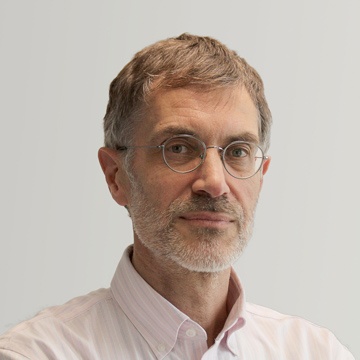World Bank President resigns, paving way for reforms to encourage development banks to provide more climate finance. That would make sense – but rich countries are demanding it because they don’t put enough money on the table themselves.
world-views
Bernd Ludermann is editor-in-chief of “welt-sichten”.
David Malpass, the president of the World Bank Group, intends to step down in the middle of the year, about a year before the end of his term. With this announcement in mid-February, he apparently has both the employees and the state shareholders of the bank surprised – also the largest, the USA.
Malpass vaguely named his desire for new tasks as the reason for his resignation. But it certainly plays a role that the US Republican who was brought into office by Donald Trump in September 2022 dodged the question of whether he considered climate change to be a proven fact, and thus triggered a shitstorm: he was often accused of denying global warming or downplay them. painting pass counters annoyed and with a certain right, that was unfair, the World Bank had doubled its climate financing under his leadership.
However, the growing pressure on development banks has deeper reasons in the North-South dispute over climate finance: Developing countries are vehemently demanding more financial aid for climate protection and adaptation to climate change as well as compensation payments for irreversible climate-related damage. At the recent climate summit, the global north gave them a fund for damage and losses, without it being clear who is paying how much into it. The North is also only partially fulfilling older, insufficient aid commitments. At least since the most recent disasters like the floods in Pakistan, it has become clear that much more money is needed here. But there is hardly a country that can or wants to spend significantly more on climate finance from its budget – especially not the USA, since the Republicans have regained a majority in the House of Representatives and can block the state budget.
That is why calls are growing for the World Bank, other development banks and the International Monetary Fund (IMF) to step into the breach. In 2021, for example, the Group of the 20 largest economies (G20) commissioned an expert report on how the World Bank could grant more loans. Loud this report the bank can borrow more on the capital market and lend on the basis of its existing deposit capital without risking its special creditworthiness.
More equity for the bank is also politically sensitive
The World Bank has one by the end of 2022 Reform plan submitted, who does not reject this, but depending on how much the financing is to be increased, wants additional capital. The US is unlikely to agree to that. Because either all shareholders would have to increase their deposits in proportion to their deposits, i.e. the USA the most, or the voting rights in the bank would shift in favor of more generous ones, which probably means: China.
One goes much further Initiative the Prime Minister of Barbados, Mia Mottley. She demands more development loans, but also reforms of the IMF in view of the debt crisis in many developing countries, so that poor countries in crises can get short-term help without strict conditions. The IMF should also fill the fund for climate damage and losses with special drawing rights, i.e. money created by it. That, too, is met with little approval in the north. The German Development Minister Svenja Schulze has together with Mottley recently asked the World Bank to make more of the available capital. However, there is no talk of reforms of the IMF and it is only vaguely suggested that rich countries could voluntarily make part of their special drawing rights created after the Corona crisis available to the World Bank.
Malpass rightly warns of the dangers of the reforms
Many ideas, for example from the BMZ, for more World Bank loans, especially for global public goods, make sense in themselves. But all financial engineering will be of little help if climate finance is no longer allowed to cost rich countries. In doing so, they are basically passing the buck to the development banks for the lack of money. Malpass apparently no longer wants to be the scapegoat for this deficiency. When the US increased pressure for rapid reforms of the World Bank, he paved the way.
A restructuring of the development banks, but not of the IMF, is likely to gain momentum in the near future. It harbors dangers that Malpass of all people pointed out shortly after his resignation: more climate protection credits could come at the expense of aid for the poorest countries and at the expense of financing for health and nutrition. After all, that’s what the donors want too, says Malpass, accusing them of barely concealed hypocrisy: the donors reduced their own development aid and then wanted to squeeze more out of international institutions like the World Bank without it costing them anything. The US Republican is right about that.
